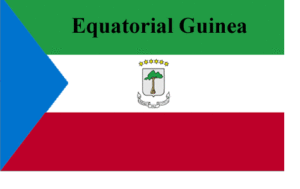 Education in Equatorial Guinea, a tiny country in west Africa, is free and compulsory for children from the preschool level through secondary school.
Education in Equatorial Guinea, a tiny country in west Africa, is free and compulsory for children from the preschool level through secondary school.
That said, attendance is not enforced and the country’s government has not dedicated much of its sizeable oil revenues towards improving the educational lot of citizens. Development partners have urged reforms and are currently working with the government to increase educational quality.
Equatorial Guinea’s education system follows the French model. Preschools serve children ages 3-6 but may not be accessible to rural children. Primary schools begin at age six and last six years; following primary school, students sit for exams to earn their basic education completion certificate.
Secondary education is divided into two cycles: a general cycle which lasts 4 years and a three-year higher academic cycle. Students who complete the second cycle may sit for Baccalaureat Deuxieme Partie examinations.
The following chart depicts the grading scale for secondary and post-secondary institutions:
| Scale | U.S. Grade Equiv. |
|---|---|
| 14.00-20.00 | A |
| 12.00-13.90 | B+ |
| 11.00-11.90 | B |
| 10.50-10.90 | B- |
| 10.00-10.40 | C+ |
| 10.00-10.30 | C |
| 9.00-9.90 | C- |
| 8.00-8.90 | D |
| 0.00-7.90 | F |
Primary students study French, Spanish, mathematics, social studies, science, physical education, music, art and practical skills.
Secondary students take French, Spanish, history and geography, mathematics, social sciences, physical and natural sciences, art, physical education, music, and technology. Upper level students also may study literature and take advanced math and science classes.
Higher education in Equatorial Guinea is provided by the National University and its associated professional institutes, offering a mix of academic and technical programs, from teacher training to mining/geology.
© 2026 Gaetranslations | Terms & Conditions
Website by: Timefortheweb